Student Chefs Spice Up Madagascar’s Fate: Cooking up Exciting Future Flavors
At Beabo Primary School in Ambovombe in the south of Madagascar, teams of students are in competition to cook the tastiest and most nutritional meal using locally available products which hopefully will encourage their parents and others to change to healthier diets.
Fifteen-year-old Marie-Eliane is one of six junior chefs who have produced an impressive three-course menu bursting with varied flavours.
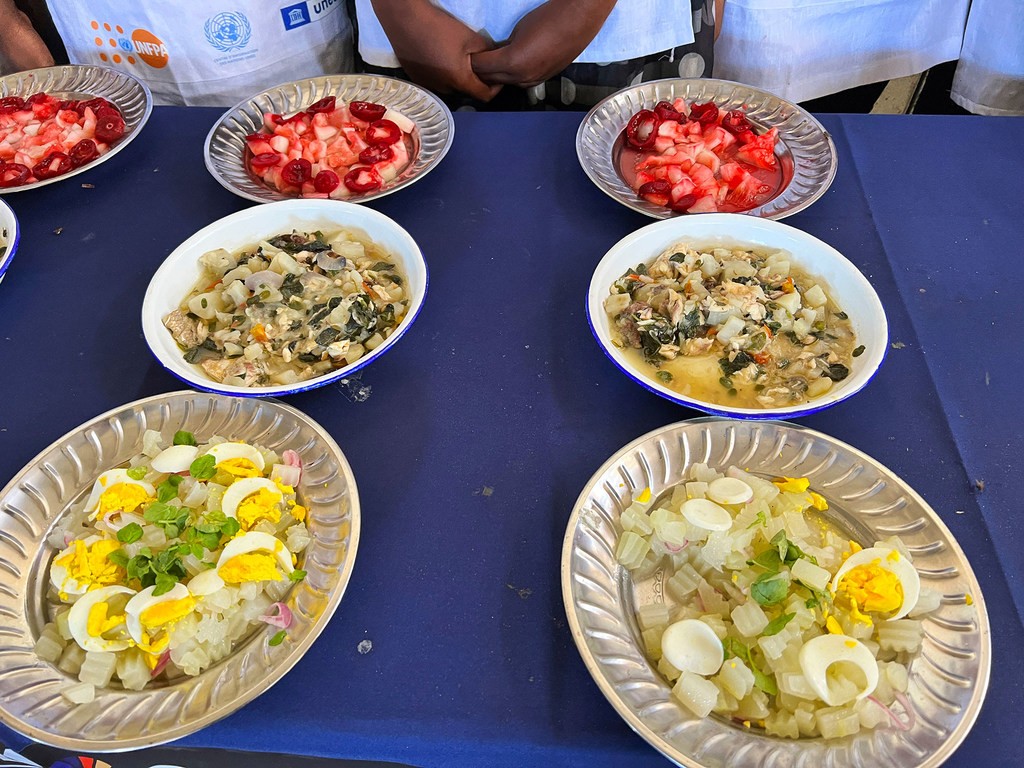
UN News/Daniel Dickinson
School children prepare a three-course meal as part of the Tsikonina competition.
Poached green papaya with boiled organic eggs topped with watercress in an orange and passion fruit dressing is served up as a starter. For the main dish, a manioc and fish stew with nutritionally-rich moringa and anamalaho leaves and for dessert, a fruit salad of cactus prickly pear, watermelon, orange juice and banana.
Her team is cooking off against six others vying to be named the best in a culinary competition known as Tsikonina, a type of Malagasy tea-party game for children.
“I have enjoyed thinking of new recipes especially when they taste so good,” she said. “I hope to persuade my parents to eat this type of food.”
The idea behind Tsikonina, which was set up by the UN in Madagascar, is to educate young people about the preparation of nutritious food and provide them and their families with the knowledge about how to eat healthily keeping within a tight budget and using local products readily available in the market.
“All the students have cooked very imaginative and delicious food,” said Emma Razanaparany the school principal. “As young people, they are in a position to influence their parents and change the way that future generations eat.”
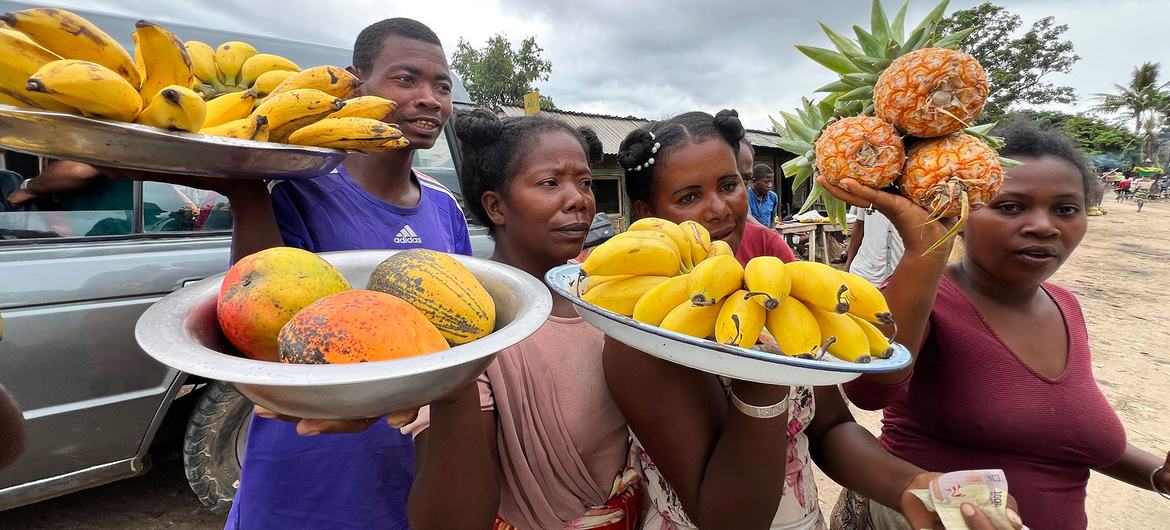
UN News/Daniel Dickinson
Students are encouraged to prepare food with produce readily available at local markets.
Drought and malnutrition
Southern Madagascar is home to some of the country’s poorest communities in a region which is experiencing the destructive impact of climate change, including recurrent drought.
As their families struggle to grow enough nutritious food, almost half a million children under the age of five are suffering from acute malnutrition, according to the UN-backed integrated food security phase (IPC) classification.
UN agencies and partners have responded with humanitarian relief aid, but are also looking beyond the cycle of immediate crises at how to ensure the longer-term sustainable development of communities.
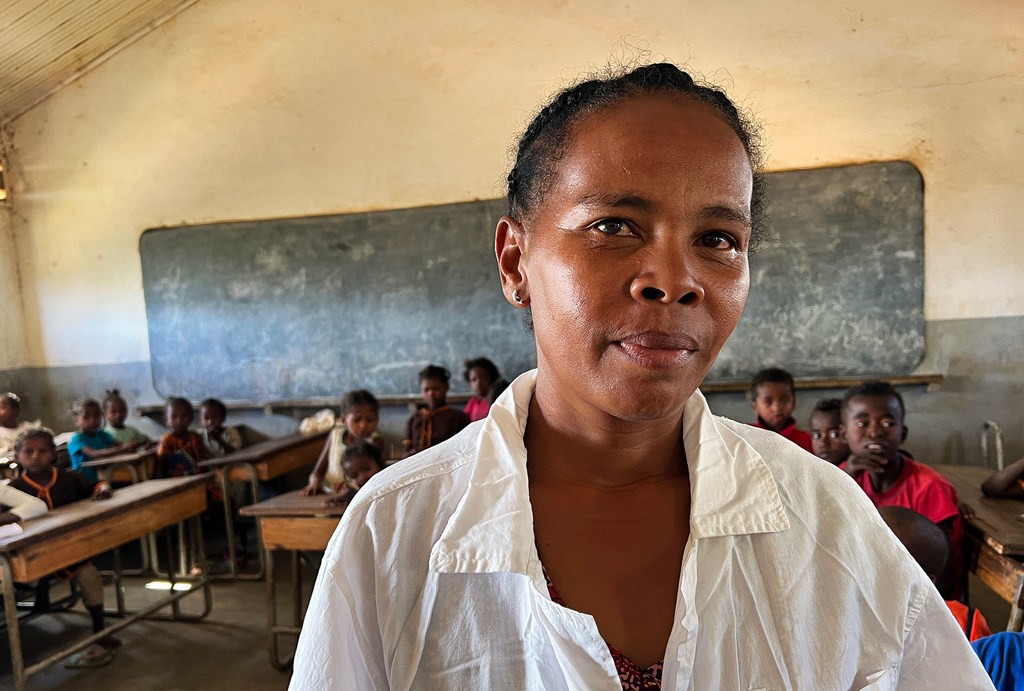
UN News/Daniel Dickinson
Emma Razanaparany is the principal of Beabo Primary School in Ambovombe.
Joint approach to tackling challenges
Competitions like Tsikonina are one small part of that effort, which is bringing together multiple UN agencies in what the UN is calling convergence zones to develop and deliver activities.
These activities draw on the expertise of individual agencies to look at the underlying vulnerabilities facing communities and the best way to address them.
Beabo Primary School is a microcosm of that collaborative approach. The UN’s Food and Agriculture Organization (FAO) and International Fund for Agricultural Development (IFAD) have both worked with local women-led farming cooperatives to support the production of food which is used by the World Food Programme (WFP) as part of its home-grown food school feeding initiative.
Providing a nutritious meal to children at school not only improves their health and encourages them to stay in school, it also boosts the local economy by providing a market for the produce of local farmers.
Better access to clean water and sanitation
The UN Children’s Fund (UNICEF) has helped to develop garden wells to provide more consistent access to water for the school as well as building a sanitation block and providing training to teachers and pupils on sanitation issues and resilience to climate change. It has also provided washing kits and pupil education packs.
“The lack of rain in this region brings many problems and worsens the living situation for people here,” said UNICEF’s Melanie Zafindrakemba, a nutrition specialist. “Providing access to clean water contributes to better hygiene and is safer for cooking and drinking and helps communities get through humanitarian crises.”
In addition to providing hot meals to vulnerable children, WFP has also trained parents and teachers to manage the school-feeding programme.
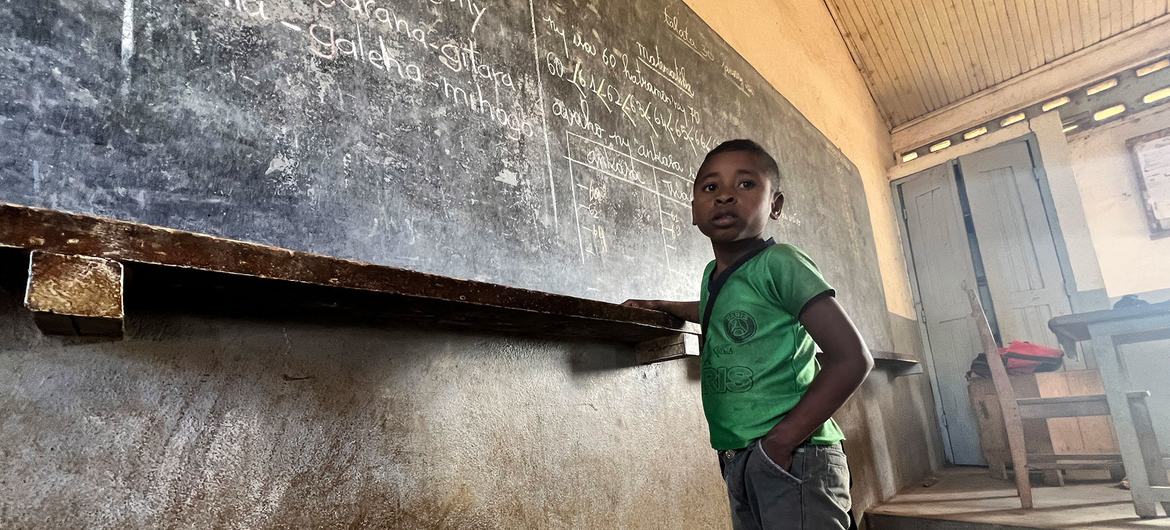
UN News/Daniel Dickinson
A boy studies at the blackboard in one of the new classrooms at Beabo Primary School.
Foundations for long-term development
Meanwhile, the UN’s International Labour Organization (ILO) has significantly improved the school’s physical infrastructure by supporting the building of two classrooms, a school kitchen as well as providing desks and tables for teachers and pupils. As part of the process, it trained and employed local workers to carry out the construction project, further boosting the local economy.
“The synergy created by UN agencies working together in this school has been powerful,” said WFP’s Fidèle Andrianantenaina, who is based in Ambovombe. “There is a convergence of problems in this region, including food insecurity, poverty, lack of access to health and social services and few job opportunities, so a project like this can support long-term stability and development,” he added.
Finding the synergy or complementarity between UN agencies is an important first step, the benefits of which are evident in this one UN-supported school. It’s now hoped that additional funding can be found to expand the approach not just to other schools across the region, but to other communities in need.
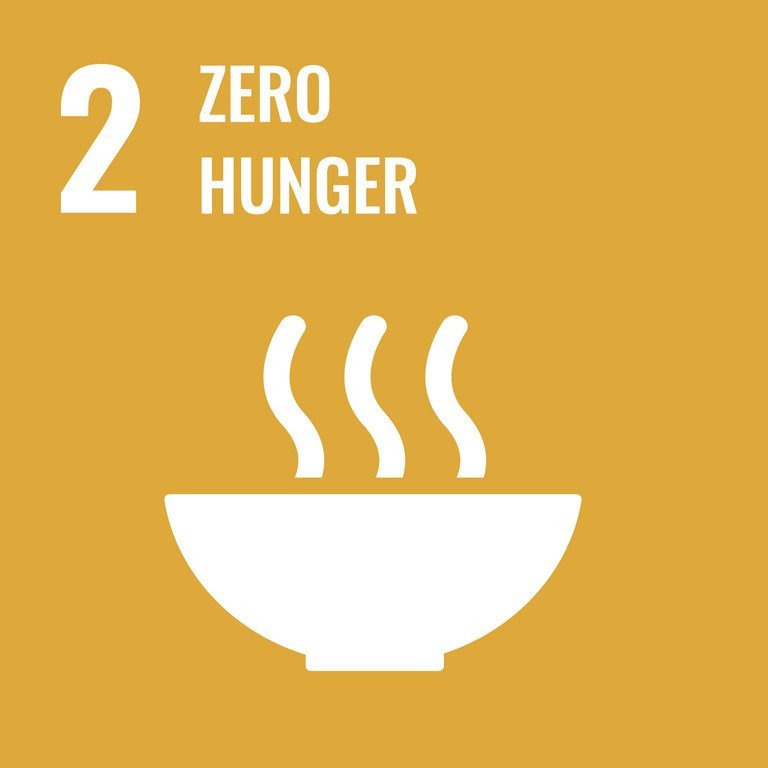
United Nations
SDG 2
SDG 2: END FOOD INSECURITY
- End hunger and malnutrition and ensure access to safe, nutritious and sufficient food year-round for all
- Double small-scale food producers’ agricultural productivity and income
- Ensure sustainable food production systems and implement agricultural practices that increase productivity/production and strengthen capacity for adaptation to climate change and disasters
- Correct and prevent trade restrictions in world agricultural markets
Globally, one in three people struggles with moderate to severe food insecurity.
Elliot is an award-winning journalist passionate about international affairs and humanitarian causes. Elliot has covered stories from conflict zones and areas devastated by disasters, highlighting critical global issues.



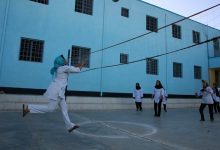
As a nutritionist, I believe initiatives like the Tsikonina competition are key to promoting healthy eating habits among young students. It’s inspiring to see children like Marie-Eliane taking the initiative to create delicious and nutritious meals using locally sourced ingredients. This not only benefits the students but also has the potential to influence their families’ diet choices positively.
Marie-Eliane’s creativity and dedication to crafting healthy and delicious meals is truly inspiring. It’s heartwarming to see young chefs like her paving the way for healthier eating habits in their community.
As a mother, I am delighted to see my daughter participating in the Tsikonina competition and learning to cook nutritious meals. It’s inspiring to see her passion for creating healthy dishes that taste delicious. I can’t wait to try out her recipes at home and explore new flavors as a family.
Wow, this is such an inspiring initiative! Do you think programs like Tsikonina can truly impact the eating habits of communities in Madagascar?
As a journalist who has covered similar initiatives in the past, I can confidently say that programs like Tsikonina have the potential to significantly influence the eating habits of communities in Madagascar. When implemented effectively and embraced by both the youth and their families, these initiatives can bring about positive changes in food choices and promote healthier diets for the entire community.
Is there any data on how successful these student chefs have been in convincing their parents and other community members to switch to healthier diets after participating in the culinary competition?
Yes, there have been positive outcomes from the Tsikonina competition where student chefs from Beabo Primary School in Madagascar have successfully influenced their parents and community members to embrace healthier diets. The initiative not only encourages culinary creativity but also promotes nutritious eating habits among families, thanks to the dedication and talent of these young chefs.
Maria believes that initiatives like the Tsikonina competition in Madagascar are crucial for educating young people about preparing nutritious food and promoting healthier diets among families, especially when young chefs like Marie-Eliane demonstrate such impressive skills and creativity in the kitchen. She hopes more parents will be inspired to embrace these recipes and ingredients for a healthier lifestyle.
As a passionate food enthusiast, I truly admire the initiative taken by the young chefs at Beabo Primary School in Madagascar. It’s inspiring to see them use local products to create healthy and delicious meals. I believe that promoting nutritious eating habits from a young age is crucial for a sustainable future. Kudos to Marie-Eliane and her team for their creativity and dedication!
Marie-Eliane and her team are doing an amazing job in this competition! It’s great to see young chefs getting creative with local ingredients and promoting healthier eating habits. I believe their efforts will inspire others to try new recipes and make positive changes in their diet.
As a culinary enthusiast myself, I find it truly inspiring to see young talents like Marie-Eliane embracing the art of cooking with such creativity and dedication. Her passion for crafting nutritious dishes using locally sourced ingredients is commendable. It’s heartwarming to witness the positive influence these student chefs are bringing to their community through their culinary skills. Kudos to Marie-Eliane and all the participants for spicing up Madagascar’s future flavors in such a flavorful way!
I absolutely admire the initiative taken by these young chefs in Madagascar. It’s inspiring to see them creating delicious and healthy meals using local ingredients. I believe that this kind of hands-on experience can truly make a difference in promoting a healthier diet within their communities.
As a nutritionist, I truly believe that initiatives like Tsikonina are crucial for instilling healthy eating habits in young generations. It’s heartening to see these student chefs embracing local ingredients and creating delicious, nutritious meals that can inspire others to make similar dietary choices. Kudos to Marie-Eliane and all the young participants for their creativity and dedication towards promoting a healthier lifestyle!
Isn’t it amazing how these young chefs are promoting healthy eating habits through their delicious creations? Do you think initiatives like Tsikonina can make a lasting impact on the dietary choices of families in Madagascar?